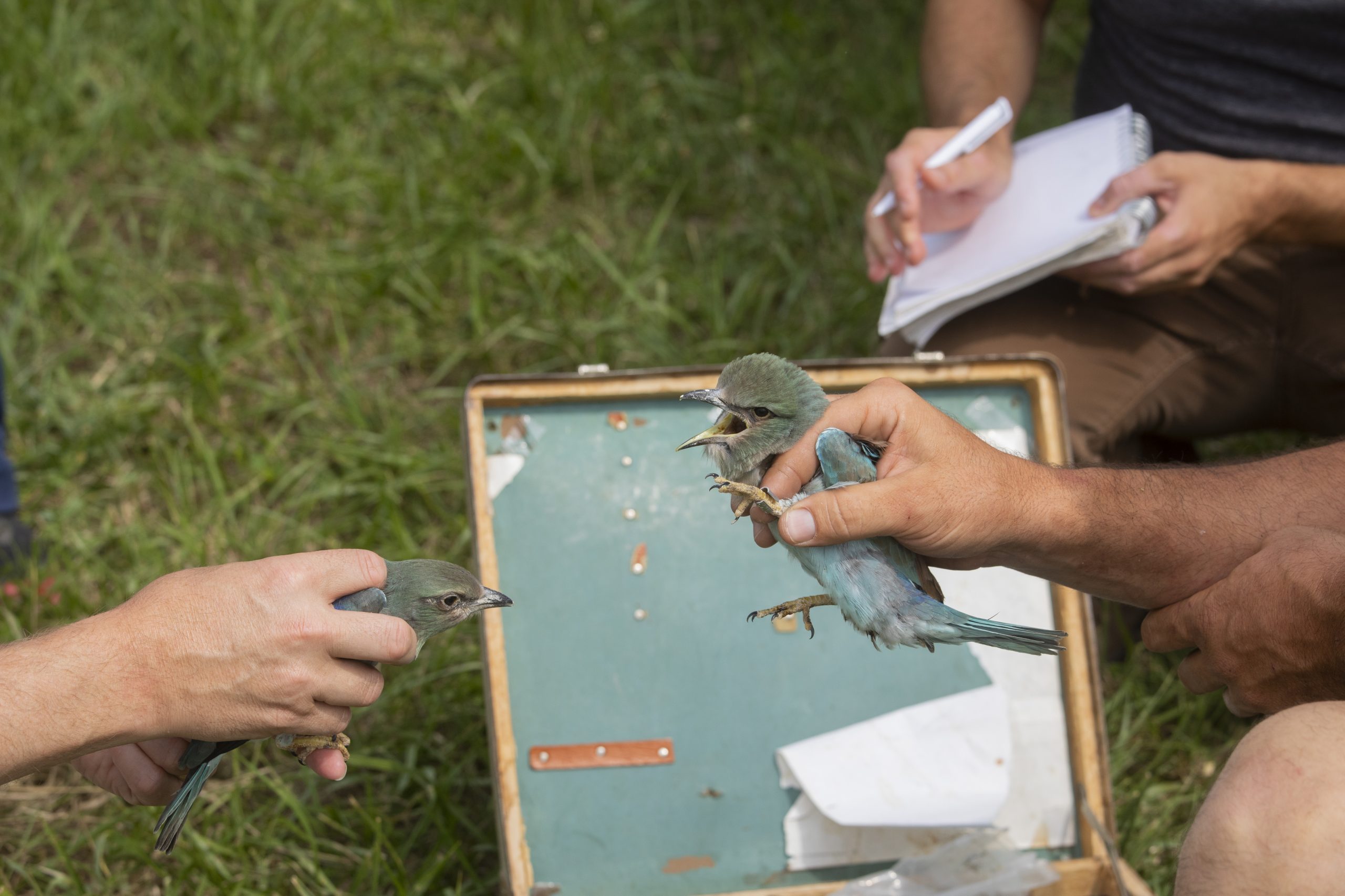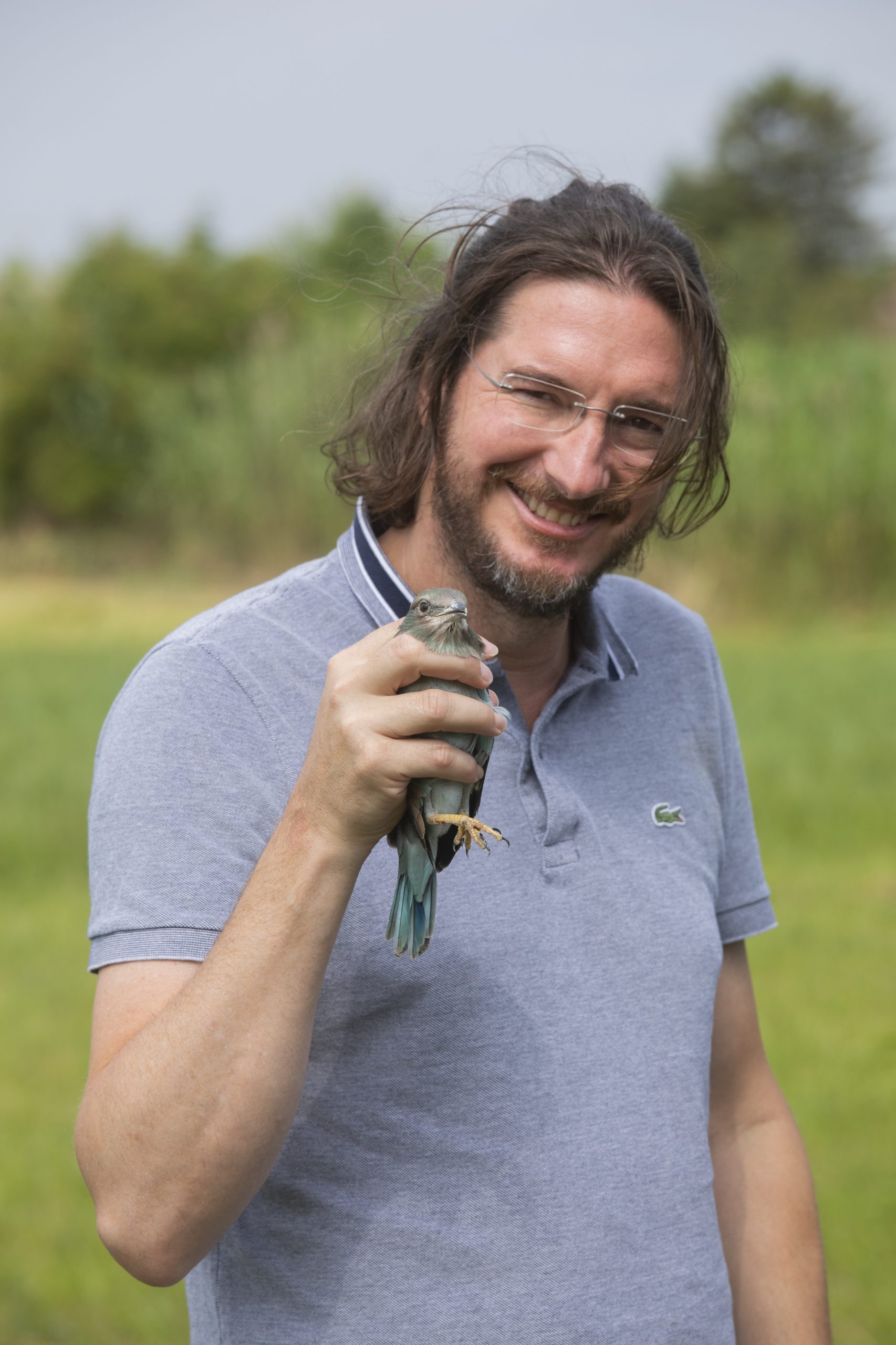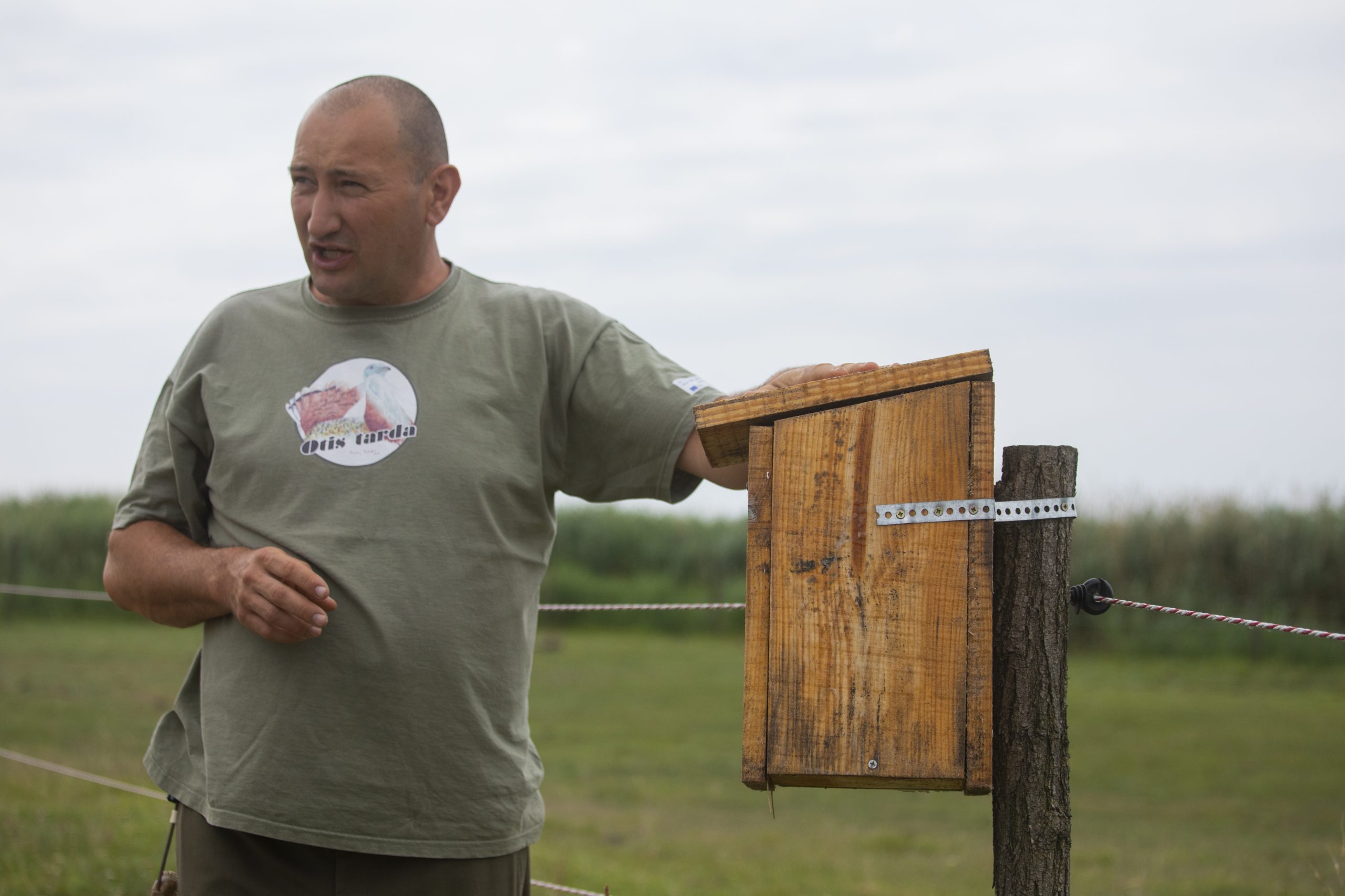In the’50s, the European roller was mentioned as a common species in Serbia in most literature sources. However, due to the agriculture intensification; use of pesticides, change of permanent grassland to other land use, and the intensification of forest management (leading to loss of old trees); the suitable habitat for the species has disappeared, as well as appropriate nesting sites, pushing the species to a dramatic decrease.
The constant decline of the European Roller (Coracias garrulus) became a threatened species in Serbia. Still, several conservation actions have been carried on to help the species recovery and nowadays is included in the Red List of Birds Species in Serbia as Near Threatened.
The European Union Delegation through the project EU for Natura 2000 promotes the improvement of the conservation status of the Europan Roller (Coracias garrulus) in the Republic of Serbia.

Antoine Avignon, project manager in the EU Delegation, says that this action is extremely important.
“Due to human actions, some species are not capable of recovering their good conservation status by themselves, however, small actions can make a big difference, and this is the case of the European Roller, whose population has increased in recent years in Serbia thanks to various in-situ conservation actions, including increasing the availability of breeding sites”, says Avignon.

The project EU for Natura 2000 is working on identifying the future Special Protection Areas for bird species, according to the implementation of European Directives in the country. The European Roller is one of the project target species. The European Roller is the only member of Coraciidae found in Europe, where its blue and chestnut plumage is unmistakable.
Rollers are primarily insectivorous and are associated with warm and open landscapes. It is a migrant species, which spend the cold winter in Sub-Saharan Africa, returning to Europe during the breeding season.

A total of 150 nest boxes have been installed in different localities in Serbia; Monostor, Mokrin, Novi Knezevac, Siget, Valesnica, Korbovo, Vajuga, Kumane, Basaid, Novo Milosevo, Sombor, Bezdan, Radojevic, Sivac, Gornji Breg, Jazovo, Coka-Crna Bara, Srpski Krstru, Prigrevica, Apatin, Karavukovo, Svilojevo, Prigrevica, Beljina – Barajevo, Bozdarevac-Barajevo, Subotica, Horgos, Martonos, Kanjiza, Mali Pesak, Backa Topola, city of Vrsac and village of Tavankut/Zednik.
These nest boxes have been installed before the arrival of the species from its migratory area. All nest boxes have been built according to specific dimensions and characteristics based on the experience and species needs. They are monitoring, and now, after breeding success, and with the aim to continue researching the species biology and its migratory behaviour, adults and chick are ringing during a ringing campaign in which members from the European Union Delegation have participated.




